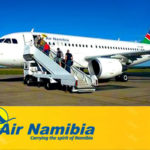It is no longer news that few of the domestic airlines still in existence are operating under a very tight economic hardship.
For so many times, key players across the sector including the airlines had cried to government to assist them in making the business environment more flexible to enable them compete favourably with airlines in other parts of the world.
Obviously, such areas the airlines want assistance from include; the high cost of aviation fuel and its non-availability, multiple taxation, unstable forex, import duty taxes and many others.
The high cost of aviation fuel and its non-availability in particular has continued to be the Achilles heels of the domestic airlines as this alone gulps almost 60 per cent of their operational cost as a liter of aviation fuel presently goes for between N170 and N270 depending on the marketers and the route.
Prior to now, the price of aviation fuel in Nigeria has been adjudged to be the most expensive, a situation which has made most foreign airlines shift patronage to other neighbouring West Africa countries where the commodity is sold at a cheaper rate.
Unfortunately, the domestic carriers out of patriotism have continued to buy fuel at a very exorbitant amount with little or no help coming from the government.
The confusion in the midst of these challenges is that many key players have also expressed their fears on how despite all these hiccups, the domestic carriers still charge between N16,000, N18,000 and N21,000 for a one hour flight which has been termed low compared to the high operational cost.
In line with the position of the key players, under the present circumstance, there is no way any of the airlines can break even with the fares they are charging. In other words, to be able to make slight profit, a one hour flight in the present day Nigeria should not be lower than N35,000 or N40,000.
The argument is, any airline that charges lower than N40,000 for one hour flight may probably have an alternative way of augmenting its operational cost or if not may be cutting corner.
Again, the domestic airlines as it had been previously attested to by some of them, charge low fares because of their consideration for the greater portion of the flying public who still struggle to fly in the midst of economic hardship.
Therefore, the domestic airlines in their wisdom agreed that any effort to increase air fares now may only end up scaring travelers away from air transport.
While the domestic airlines deserve commendations and support from the government urgently, there is however the need for the Nigerian Civil Aviation Authority (NCAA), the country’s aviation regulatory body to thoroughly look into the condition of the domestic airlines with particular attention on the fares they charge.
Fine, it may be argued that the present fares being charged is affordable to many travelers, but the questions waiting for answers include; if the fares presently being charged on the domestic routes are commensurate to the high operational cost the airlines are battling with; how are the airlines managing to still survive or make little profit out of the ridiculous fares being charged.
While no one is asking intending travelers to be scared away with high fares, the truth is that it is better to pay reasonable fares that will make the airlines prioritize safety and recommended standard practice rather than cutting corners to cushion the effect of charging low fares.
Though no one is accusing the airlines of cutting corners to remain in business, but one sure thing is that the present fares being charged cannot give them all the critical components needed for standard operations.
Since the consequences of compromising safety cannot be quantified, the time has come for the NCAA to prevail on the government to review the airline business environment as this will relief the domestic airlines of the heavy operational burden hanging on their heads.
Failure on the part of government to look into the challenges facing the local airlines may boomerang in the face of any emergency that may emerge in the cause of charging fares that will only encourage safety compromise all in the name of remaining in business.






